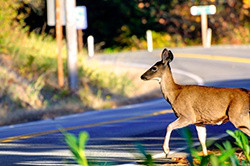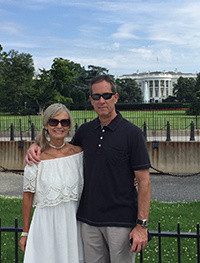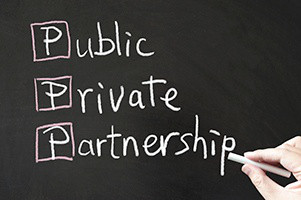 You don’t have to live in a rural area to be at risk for run-ins with deer. Many suburbs see their fair share of deer activity. And the fall brings a heightened risk. October through December is migration and mating season for deer. During this time the deer population is much more active and there is a significant increase in deer-vehicle accidents.
You don’t have to live in a rural area to be at risk for run-ins with deer. Many suburbs see their fair share of deer activity. And the fall brings a heightened risk. October through December is migration and mating season for deer. During this time the deer population is much more active and there is a significant increase in deer-vehicle accidents.
According to the Insurance Institute for Highway Safety (IIHS), each year there are 1.5 million deer-vehicle collisions causing over 150 occupant deaths, 10,000+ injuries, and more than $1 billion in vehicle damage.
The big question is: does your auto insurance policy cover you in the event of a deer-vehicle incident?
It depends.
Damage to your vehicle caused by a run-in with a deer would most often NOT be covered by your basic state mandated auto insurance. The basic policies cover the costs associated with damages to other cars that you cause, but don’t actually cover the damage to your own vehicle. There are optional coverages available – collision and comprehensive – that will fill that void. But you need to request them when purchasing your auto policy. So depending of the details of the accident with a deer, it would only be covered by comprehensive or collision coverage.
Let’s review the definitions of these coverages, as provided by the Insurance Information Institute:
- Collision— This coverage pays for damage to your car resulting from a collision with another car, object or as a result of flipping over. It also covers damage caused by potholes.
- Comprehensive— This coverage reimburses you for loss due to theft or damage caused by something other than a collision with another car or object, such as fire, falling objects, missiles, explosion, earthquake, windstorm, hail, flood, vandalism, riot, or contact with animals such as birds or deer.
How does this apply to our deer incidents?
- If a deer runs across the road and you hit it – you had physical contact with the deer, it is considered to be no fault, and would fall under comprehensive coverage.
- If you swerve to avoid a deer and hit a tree or fence – that would be considered collision.
If your auto policy doesn’t include these additional coverages and you find yourself in an accident with a deer, you’ll be out of luck.
You can’t eliminate the possibility of encountering a deer on your drive, but you can take precautions to minimize the risk of injury or damage. Take a look at the following tips:
- NEVER swerve to avoid hitting a deer. Brake and hit the deer if you must. You are far less likely to be injured by hitting a deer directly than by swerving off the road or into oncoming traffic to avoid hitting one.
- When you see one deer there are probably more. And they often follow each other, especially if one starts to run. If you see one near the road, slow down and watch for more.
- Observe general driving safety laws. Maintain your vehicle’s lights, brakes, and tires. Wear your seat-belt at all times. Observe the posted speed limit. Don’t drive too closely behind other cars.
- Adjust your headrest to a proper height to prevent whiplash if you are in an accident. The top of the head restraint should be level with or above the top of your head.
- Slow down and pay attention. Don’t waste money on novelties like deer whistles – studies show that are ineffective at deterring deer. The best way to avoid an accident is to be alert.
Talk to your insurance advisor to understand your auto insurance policy and find out if you’d be covered in a deer-vehicle accident. And stay alert as you hit the road this fall!




